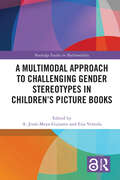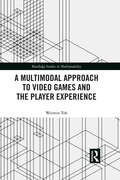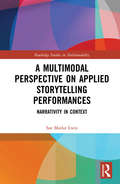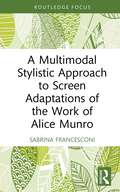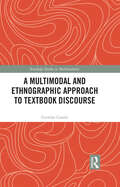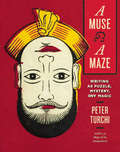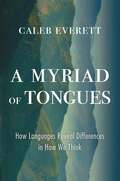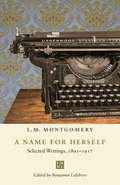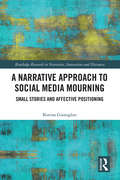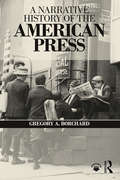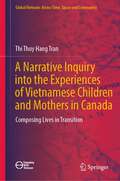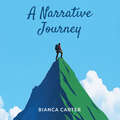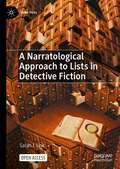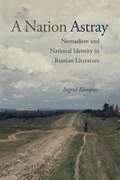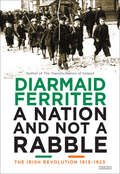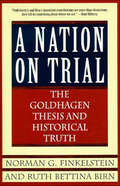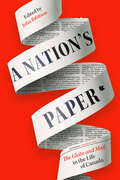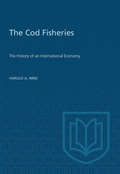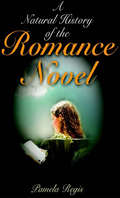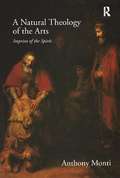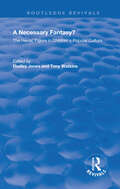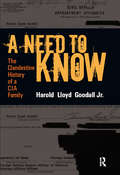- Table View
- List View
A Multimodal Approach to Challenging Gender Stereotypes in Children’s Picture Books (Routledge Studies in Multimodality)
by Moya-Guijarro, A. JesúsThis collection offers a thorough treatment of the ways in which the verbal and visual semiotic modes interrelate toward promoting gender equality and social inclusion in children’s picture books. Drawing on cutting-edge theoretical work in multimodality, including multimodal cognitive linguistics, multimodal discourse analysis, and visual social semiotics, the book expands on descriptive-oriented studies to offer a more linguistically driven perspective on children’s picture books. The volume explores the choice afforded to and the lexico-semantic and discursive strategies employed by writers and illustrators in conveying representational, interpersonal, and textual meanings in the verbal and non-verbal components in these narratives in order to challenge gender stereotypes and promote the social inclusion of same-sex parent families. This book will be of particular interest to students and scholars in multimodality, discourse analysis, social semiotics, and children’s literature. Chapter 1 of this book is freely available as a downloadable Open Access PDF under a Creative Commons Attribution-Non Commercial-No Derivatives 4.0 license available at http://www.taylorfrancis.com.
A Multimodal Approach to Challenging Gender Stereotypes in Children’s Picture Books (Routledge Studies in Multimodality)
by Moya-Guijarro, A. JesúsThis collection offers a thorough treatment of the ways in which the verbal and visual semiotic modes interrelate toward promoting gender equality and social inclusion in children’s picture books.Drawing on cutting-edge theoretical work in multimodality, including multimodal cognitive linguistics, multimodal discourse analysis, and visual social semiotics, the book expands on descriptive-oriented studies to offer a more linguistically driven perspective on children’s picture books. The volume explores the choice afforded to and the lexico-semantic and discursive strategies employed by writers and illustrators in conveying representational, interpersonal, and textual meanings in the verbal and non-verbal components in these narratives in order to challenge gender stereotypes and promote the social inclusion of same-sex parent families.This book will be of particular interest to students and scholars in multimodality, discourse analysis, social semiotics, and children’s literature.Chapters 1 & 8 of this book are freely available as downloadable Open Access PDFs under a Creative Commons Attribution-Non Commercial-No Derivatives 4.0 license available at http://www.taylorfrancis.com.
A Multimodal Approach to Video Games and the Player Experience (Routledge Studies in Multimodality)
by Weimin TohThis volume puts forth an original theoretical framework, the ludonarrative model, for studying video games which foregrounds the empirical study of the player experience. The book provides a comprehensive introduction to and description of the model, which draws on theoretical frameworks from multimodal discourse analysis, game studies, and social semiotics, and its development out of participant observation and qualitative interviews from the empirical study of a group of players. The volume then applies this approach to shed light on how players’ experiences in a game influence how they understand and make use of game components in order to progress its narrative. The book concludes with a frame by frame analysis of a popular game to demonstrate the model’s principles in action and its subsequent broader applicability to analyzing video game interaction and design. Offering a new way forward for video game research, this volume is key reading for students and scholars in multimodality, discourse analysis, game studies, interactive storytelling, and new media.
A Multimodal Perspective on Applied Storytelling Performances: Narrativity in Context (Routledge Studies in Multimodality)
by Soe Marlar LwinIn this volume, Soe Marlar Lwin proposes a contextualized multimodal framework that brings together storytelling practitioners’ and academic researchers’ conceptions of storytelling. It aims to highlight the ways in which various institutions in contemporary society have been using live storytelling performances as an effective communicative, educative and meaning-making tool. Drawing on theories of narrative from narratology as well as from related fields such as discourse analysis, multimodal analysis, communication and performance studies, the author proposes a contextualized multimodal framework to (a) uncover the potential narrativity of a live storytelling performance through an analysis of narrative elements constituting the story, (b) capture the process of developing actual narrativity through a multimodal analysis of performance features in the storytelling discourse, and (c) highlight the importance of context and dynamics between the storyteller and audience for an achievement of optimal narrativity in a particular storytelling event. The sample analysis shows how the framework not only describes the system governing institutionalized storytelling performances in general but also serves as a useful model to examine individual performance as a unique realization of the general system. The book also offers implications for possible applications of such contextualized multimodal frameworks more broadly across the disciplines.
A Multimodal Stylistic Approach to Screen Adaptations of the Work of Alice Munro (Routledge Studies in Multimodality)
by Sabrina FrancesconiThis volume brings together perspectives from multimodal stylistics and adaptation studies for a unified theoretical analysis of adaptations of the work of Alice Munro, demonstrating the affordances of the approach in furthering interdisciplinary research at the intersection of these fields The book considers films and television programmes as complex multimodal stylistic systems in and of themselves in order to pave the way for a clearer understanding of screen adaptations as expressions of modal, medial, and aesthetic change. In focusing on Munro, Francesconi draws attention to a writer whose body of work has been adapted widely across television and film for an international market over several decades, offering a diachronic overview and insights into the confluence of socio-cultural contexts, audiences, and dynamics of production and distribution across adaptations. The volume complements this perspective with a microanalysis of the adaptations themselves, exploring the varied creative use of audio-visual dimensions, including sound, light, and movement. The book seeks to overcome simplified fidelity-based understandings of screen adaptations more broadly, showcasing creative multi-layered approaches to a creator’s oeuvre to effect true transformation across media and modes. The volume will be of interest to scholars in multimodality, adaptation studies, film studies, and comparative literature.
A Multimodal and Ethnographic Approach to Textbook Discourse (Routledge Studies in Multimodality)
by Germán CanaleThis book offers a new framework for analysing textbook discourse, bridging the gap between contemporary ethnographic approaches and multimodality for a contextually sensitive approach which considers the multiplicity of multimodal resources involved in the production and use of textbooks. The volume makes the case for textbook discourse studies to go beyond studies of textual representation and critically consider the ways in which textbook discourse is situated within wider social practices. Each chapter considers a different social semiotic practice in which textbook and textbook discourse is involved: representation, communication, interaction, learning, and recontextualization. In bringing together this work with contemporary ethnography scholarship, the book offers a comprehensive toolkit for further research on textbook discourse and pushes the field forward into new directions. This innovative book will be of particular interest to students and scholars in discourse analysis, multimodality, social semiotics, language and communication, and curriculum studies.
A Multitude of Women
by Stefania LucamanteA Multitude of Women looks at the ways in which both Italian literary tradition and external influences have assisted Italian women writers in rethinking the theoretical and aesthetic ties between author, text, and readership in the construction of the novel. Stefania Lucamante discusses the valuable contributions that Italian women writers have made to the contemporary novel and illustrates the relevance of the novelistic examples set by their predecessors. She addresses various discursive communities, reading works by Di Lascia, Ferrante, Vinci, and others with reference to intertextuality and the theories of Elsa Morante and Simone de Beauvoir. This study identifies a positive deviation from literary and ideological orthodoxy, a deviation that helps give meaning to the Italian novel and to transform the traditional notion of the canon in Italian literature. Lucamante argues that this is partly due to the merits of women writers and their ability to eschew obsolete patterns in narrative while favouring forms that are more attuned to the ever-changing needs of society. She shows that contemporary novels by women authors mirror a shift from previous trends in which the need for female emancipation interfered with the actual literary and aesthetic significance of the novel. A Multitude of Women offers a new epistemology of the novel and will appeal to those interested in women's writing, readership, Italian studies, and literary studies in general.
A Muse and a Maze
by Peter TurchiWith his characteristic genius for finding connections between writing and the stuff of our lives, Peter Turchi ventures into new and even more surprising territory. In A Muse and a Maze, Turchi draws out the similarities between writing and puzzle-making and its flip-side, puzzle-solving. As he teases out how mystery lies at the heart of all storytelling, he uncovers the magic-the creation of credible illusion-that writers share with the likes of Houdini and master magicians. In Turchi's associative narrative, we learn about the history of puzzles, their obsessive quality, and that Benjamin Franklin was a devotee of an ancient precursor of sudoku called Magic Squares. Applying this rich backdrop to the requirements of writing, Turchi reveals as much about the human psyche as he does about the literary imagination and the creative process.
A Myriad of Tongues: How Languages Reveal Differences in How We Think
by Caleb EverettA sweeping exploration of the relationship between the language we speak and our perception of such fundamentals of experience as time, space, color, and smells.We tend to assume that all languages categorize ideas and objects similarly, reflecting our common human experience. But this isn’t the case. When we look closely, we find that many basic concepts are not universal, and that speakers of different languages literally see and think about the world differently.Caleb Everett takes readers around the globe, explaining what linguistic diversity tells us about human culture, overturning conventional wisdom along the way. For instance, though it may seem that everybody refers to time in spatial terms—in English, for example, we speak of time “passing us by”—speakers of the Amazonian language Tupi Kawahib never do. In fact, Tupi Kawahib has no word for “time” at all. And while it has long been understood that languages categorize colors based on those that speakers regularly encounter, evidence suggests that the color words we have at our disposal affect how we discriminate colors themselves: a rose may not appear as rosy by any other name. What’s more, the terms available to us even determine the range of smells we can identify. European languages tend to have just a few abstract odor words, like “floral” or “stinky,” whereas Indigenous languages often have well over a dozen.Why do some cultures talk anthropocentrically about things being to one’s “left” or “right,” while others use geocentric words like “east” and “west”? What is the connection between what we eat and the sounds we make? A Myriad of Tongues answers these and other questions, yielding profound insights into the fundamentals of human communication and experience.
A Name for Herself: Selected Writings, 1891–1917 (The L.M. Montgomery Library)
by L. M. Montgomery Benjamin LefebvreYears before she published her internationally celebrated first novel, Anne of Green Gables, L.M. Montgomery (1874–1942) started contributing short works to periodicals across North America. While these works consisted primarily of poems and short stories, she also experimented with a wider range of forms, particularly during the early years of her career, at which point she tested out several authorial identities before settling on the professional moniker "L.M. Montgomery." A Name for Herself: Selected Writings, 1891–1917 is the first in a series of volumes collecting Montgomery’s extensive contributions to periodicals. Leading Montgomery scholar Benjamin Lefebvre discusses these so-called miscellaneous pieces in relation to the works of English-speaking women writers who preceded her and the strategies they used to succeed, including the decision to publish under gender-neutral signatures. Among the highlights of the volume are Montgomery’s contributions to student periodicals, a weekly newspaper column entitled "Around the Table," a long-lost story narrated first by a woman trapped in an unhappy marriage and then by the man she wishes she had married instead, and a new edition of her 1917 celebrity memoir, "The Alpine Path." Drawing fascinating links to Montgomery’s life writing, career, and fiction, this volume will offer scholars and readers alike an intriguing new look at the work of Canada’s most enduringly popular author.
A Narrative Approach to Social Media Mourning: Small Stories and Affective Positioning (Routledge Research in Narrative, Interaction, and Discourse)
by Korina GiaxoglouThis book investigates how social media are reconfiguring dying, death, and mourning. Taking a narrative approach, it argues that dying, death, and mourning are shared online as small stories of the moment, which are organized around transgressive moments and events with motivational, participatory, or connective scope. Through the different case studies discussed, this book presents an empirical framework for analyzing small stories of dying, death and mourning as practices of sharing which become associated with specific modes of affective positioning, i.e. modulations of different degrees of distance or proximity to the death event and the dead, the networked audience(s), and the affective self. The book calls for the study of affect as integral to narrative activity and opens up broader questions about how stories and emotion are mobilized in digital cultures for accruing audiences, value (social or economic), and visibility. It will be of interest to researchers in narrative analysis, the anthropology and sociology of emotion, digital communication, media and cultural studies, and (digital) death and dying.
A Narrative History of the American Press
by Gregory A. BorchardBeginning with the American Revolution and spanning over two hundred years of American journalism, A Narrative History of the American Press provides an overview of the events, institutions, and people who have shaped the press, from the creation of the First Amendment to today. Gregory A. Borchard’s introductory text helps readers develop an understanding of the role of the press in both the U.S. and world history, and how American culture has shaped—and been shaped by—the role of journalism in everyday life. The text, along with a rich array of supplemental materials available online, provides students with the tools used by both reporters and historians to understand the present through the past, allowing readers to use the history of journalism as a lens for implementing their own storytelling, reporting, and critical analysis skills.
A Narrative Inquiry into the Experiences of Vietnamese Children and Mothers in Canada: Composing Lives in Transition (Global Vietnam: Across Time, Space and Community)
by Thi Thuy TranThis book recounts the understanding of three Vietnamese children and their mothers’ experiences as they navigate being newcomers to Canada. It explores the cultural, traditional, familial, intergenerational, personal, social, institutional, political, historical, community, and linguistic narratives shaping Vietnamese children and mothers as they compose their lives. The author employs narrative inquiry as a methodological approach, beginning by positioning herself through her narrative beginnings, delving deep into philosophical and methodological underpinnings. The author lays out the three child–mother pairs’ experiences as they negotiated a new culture in Canada, particularly the spaces of home, schools, and communities. The book brings a holistic and relational way of understanding familial curriculum-making as support for children’s school curriculum-making and for the ways in which Vietnamese families’ sustain their ongoing life making. It also looks at the influence of the homeland’s language, culture, and educational traditions. Through the complex interplay between the children and mothers’ narratives and the writer’s own stories, this book discusses multiperspectival and multidimensional ways of supporting Vietnamese newcomers and other ‘arrivals’ composing their lives in similar landscapes. The book is relevant to educators, researchers, cultural brokers, and policymakers, opening avenues for understanding cultural ethics within the relational ethics of narrative inquiry, as well as familial narratives in relation to institutional and social narratives.
A Narrative Journey
by Bianca CarterWriting a narrative is like taking a journey up a mountain! You must be prepared for the trip by packing the essentials, then you make the journey up the mountain before reaching the most important part: the view. Just like going down a mountain, if you run back down and rush your ending you could ruin the entire trip. A Narrative Journey takes you on an adventure on how to write a well-structured story using the concept of taking a journey up a mountain.
A Narratological Approach to Lists in Detective Fiction (Crime Files)
by Sarah J. LinkThis open access book examines how the form of the list features as a tool for meaning-making in the genre of detective fiction from the nineteenth to the twenty-first century. The book analyzes how both readers and detectives rely on listing as an ordering and structuring tool, and highlights the crucial role that lists assume in the reading process. It extends the boundaries of an emerging field dedicated to the study of lists in literature and caters to a newly revived interest in form and New Formalist approaches in narratological research. The central aim of this book is to show how detective fiction makes use of lists in order to frame various conceptions of knowledge. The frames created by these lists are crucial to decoding the texts, and they can be used to demonstrate how readers can be engaged in the act of detection or manipulated into accepting certain propositions in the text.
A Nation Astray: Nomadism and National Identity in Russian Literature (NIU Series in Slavic, East European, and Eurasian Studies)
by Ingrid KleespiesThe metaphor of the nomad may at first seem surprising for Russia given its history of serfdom, travel restrictions, and strict social hierarchy. But as the imperial center struggled to tame a vast territory with ever-expanding borders, ideas of mobility, motion, travel, wandering, and homelessness came to constitute important elements in the discourse about national identity. For Russians of the nineteenth century national identity was anything but stable. This rootlessness is at the core of A Nation Astray. Here, Ingrid Anne Kleespies traces the image of the nomad and its relationship to Russian national identity through the debates and discussion of literary works by seminal writers like Karamzin, Pushkin, Chaadaev, Goncharov, and Dostoevsky. Appealing to students of Russian Romanticism, nationhood, and identity, as well as general readers interested in exile and displacement as elements of the human condition, this interdisciplinary work illuminates the historical and philosophical underpinnings of a basic aspect of Russian self-determination: the nomadic constitution of the Russian nation.
A Nation Starts with Great People (Reach Into Phonics Ser.)
by Deborah J. Short Karen Cotton Luc MarchantNIMAC-sourced textbook
A Nation and Not a Rabble: The Irish Revolution 1913–1923
by Diarmaid FerriterThe renowned Irish historian delivers “an excellent scholarly reevaluation” of the 1916 Easter Rebellion and the turbulent decade that followed (Library Journal).On Easter Monday of 1916, the Irish Republican Brotherhood launched an armed uprising against British rule that would continue for six days. But Easter Rising was only the beginning of an ongoing revolutionary struggle. In A Nation and Not a Rabble, Diarmaid Ferriter presents a fresh look at Ireland from 1913-1923, drawing from newly available historical sources as well as the testimonies of the people who lived and fought through this extraordinary period. Ferriter highlights the gulf between rhetoric and reality in politics and violence, the role of women, the battle for material survival, the impact of key Irish unionist and republican leaders, as well as conflicts over health, land, religion, law and order, and welfare.
A Nation on Trial: The Goldhagen Thesis and Historical Truth
by Norman G. Finkelstein Ruth Bettina BirnNo recent work of history has generated as much interest as Daniel Jonah Goldhagen's Hitler's Willing Executioners. Purporting to solve the mystery of the Nazi holocaust, Goldhagen maintains that ordinary Germans were driven by fanatical anti-Semitism to murder the Jews. An immediate national best-seller, the book went on to create an international sensation. Now, in A Nation on Trial, two leading critics challenge Goldhagen's findings and show that his work is not scholarship at all. With compelling cumulative effect, Norman G. Finkelstein meticulously documents Goldhagen's distortions of secondary literature and the internal contradictions of his argument. In a complementary essay, Ruth Bettina Birn juxtaposes Goldhagen's text against the German archives he consulted. The foremost international authority on these archives, Birn conclusively demonstrates that Goldhagen systematically misrepresented their contents. The definitive statement on the Goldhagen phenomenon, this volume is also a cautionary tale on the corruption of scholarship by ideological zealotry.
A Nation's Paper: The Globe and Mail in the Life of Canada
by John IbbitsonFrom Canada's newspaper of record for 180 years, here are thirty-one brilliant and provocative essays by a diverse selection of their writers on how The Globe and Mail covered and influenced major events and issues from the paper&’s founding to the latest file. Since 1844, the Globe and Mail and its predecessor, George Brown&’s Globe, have chronicled Canada: as a colony, a dominion, and a nation. To mark the paper&’s 180th anniversary, Globe writers explored thirty issues and events in which the national newspaper has influenced the course of the country: Confederation, settler migrations, regional tensions, tussles over language, religion, and race. The essays reveal a tapestry of progress, conflict, and still-incomplete reconciliation: Catholic-Protestant hostilities that are now mostly the stuff of memory; the betrayal of Indigenous peoples with which we still grapple; the frustrations and triumphs of women journalists; pandemics old and new; environmental challenges; the joys of covering sports and the arts; chronicling the nation&’s business, international coverage, the impossibility of Canada and of this newspaper, which both somehow flourish nonetheless. Riveting, insightful, disturbing, witty, and always a joy to read, A Nation&’s Paper chronicles a country and a newspaper that have grown and struggled together – essential reading for anyone who wants to understand where we came from and where we are going. The Globe and Mail will donate all its proceeds from the book to Journalists for Human Rights.
A Native Heritage: Images of the Indian in English-Canadian Literature (The Royal Society of Canada Special Publications)
by Leslie MonkmanDisparity and division in religion, technology and ideology have characterized relations between English-Canadian and Indian cultures through-out Canada's history. From the earliest declaration of white territorial ownership to the current debate on aboriginal rights, red man and white man have had opposing principles and perspectives. The most common 'solutions' imposed on these conflicts by white men have relegated the Indian to the fringes of white society and consciousness. This survey of English-Canadian literature is the first comprehensive examination of a tradition in which white writers turn to the Indian and his culture for standards and models by which they can measure their own values and goals; for patterns of cultural destruction, transformation, and survival; and for sources of native heroes and indigenous myths. Leslie Monkman examines images of the Indian as they appear in works raning from Robert Rogers' Ponteach, or The Savages of America (1766) to Robertson Davies' 'Pontiac and the Green Man' (1977), demonstrating how English-Canadian writers have illuminated their own world through reference to Indian culture. The Indian has been seen as an antagonist, as a superior alternative, as a member of a vanishing and lamented race, and as a hero and the source of the new myths. Although white/Indian tension often lies in apparently irreconcilable opposites, Monkman finds in the literature surveyed complementary images reflecting a common humanity.This is an important contribution to a hitherto unexplored area of Canadian literature in English which should give rise to further elaboration of this major theme.
A Natural History of the Romance Novel
by Pamela RegisThe romance novel has the strange distinction of being the most popular but least respected of literary genres. While it remains consistently dominant in bookstores and on best-seller lists, it is also widely dismissed by the critical community. Scholars have alleged that romance novels help create subservient readers, who are largely women, by confining heroines to stories that ignore issues other than love and marriage. Pamela Regis argues that such critical studies fail to take into consideration the personal choice of readers, offer any true definition of the romance novel, or discuss the nature and scope of the genre. Presenting the counterclaim that the romance novel does not enslave women but, on the contrary, is about celebrating freedom and joy. Regis offers a definition that provides critics with an expanded vocabulary for discussing a genre that is both classic and contemporary, sexy and entertaining. Taking the stance that the popular romance novel is a work of literature with a brilliant pedigree, Regis asserts that it is also a very old, stable form. She traces the literary history of the romance novel from canonical works such as Richardson's Pamela through Austen's Pride and Prejudice, Bronteuml's Jane Eyre, and E. M. Hull's The Sheik, and then turns to more contemporary works such as the novels of Georgette Heyer, Mary Stewart, Janet Dailey, Jayne Ann Krentz, and Nora Roberts.
A Natural Theology of the Arts: Imprint of the Spirit
by Anthony MontiA Natural Theology of the Arts contends that the arts are theological by their very nature and not simply when they are explicitly religious - thereby constituting a distinctive kind of 'natural theology'. Borrowing from science the stance of 'critical realism' to justify truth claims in art and theology, it argues that works of art are complex metaphors that convey the 'real presence' of God, even when not labeled as such.
A Necessary Fantasy?: The Heroic Figure in Children's Popular Culture
by Dudley Jones Tony WatkinsThis book addresses a variety of issues through the examination of heroic figures in children's popular literature, comics, film, and television.
A Need to Know: The Clandestine History of a CIA Family
by H.L. Goodall JrIn scenes eerily parallel to the culture of fear inspired by our current War on Terror, A Need to Know explores the clandestine history of a CIA family defined, and ultimately destroyed, by their oath to keep toxic secrets during the Cold War. When Bud Goodall’s father mysteriously died, his inheritance consisted of three well-worn books: a Holy Bible, The Great Gatsby, and a diary. But they turned his life upside down. From the diary Goodall learned that his father had been a CIA operative during the height of the Cold War, and the Bible and Gatsby had been his codebooks. Many unexplained facets of Bud’s childhood came into focus with this revelation.The high living in Rome and London. The blood-stained stiletto in his jewelry case. Bud, as a child, was always told he never had “a need to know.” Or did he? Now, as an adult and a university professor, Goodall attempts to fill in the missing pieces of his Cold War childhood by uncovering a lifetime of family secrets. Who were his parents? What did his father do on those business trips when he was “working for the government?” What betrayal turned a heroic career of national service into a nightmare of alcoholism, depression, and premature death for both of his parents? Slowly, inexorably, Goodall unearths the chilling secrets of a CIA family in A Need to Know. 2006 Best Book Award, National Communication Association Ethnography Division
